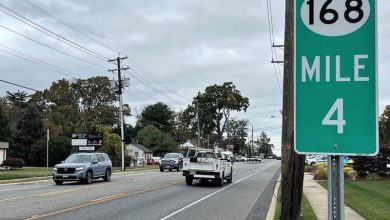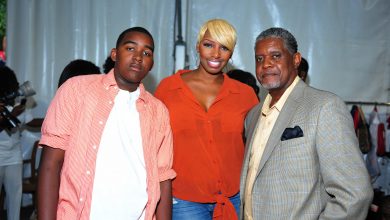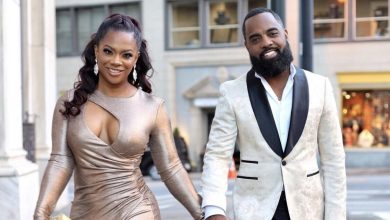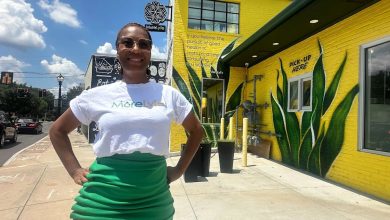How Black-Owned Seed Companies Are Growing More Than Food
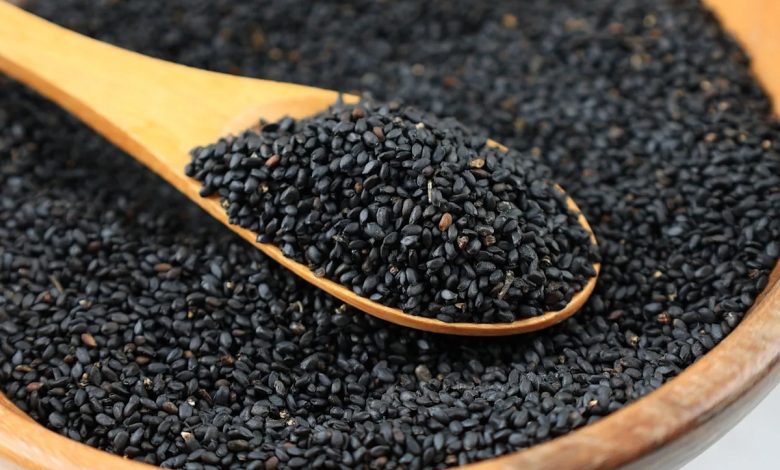
In recent years, seed saving has emerged as both an agricultural practice and an act of resistance, memory and reclamation. For these three Black-owned seed companies—Plant and Heal, Urban Garden Plants and The Hood Garden—seeds represent more than mere planting tools; they embody culture, healing and hope. Each founder is cultivating more than just crops; they are nurturing legacies.
3 Seed Companies Nurturing Culture, Communities and Legacies
Plant and Heal
The number of Black-owned seed companies remains small, so much so that there’s no data to collect, but awareness is increasing. For Erica McRAE, founder of Plant and Heal—and known affectionately as Erica Plants—her rise represents more than entrepreneurship; it signifies cultural reclaiming, ancestral healing, and a stand against food injustice being someone else’s responsibility.
“There’s extensive misinformation about food,” McRAE says. “People verify everything but food itself. No one questions the seedless watermelons, white tomatoes, or scentless strawberries. No one asks, ‘Where did this even come from?’”
Founded in 2022, Plant and Heal is a seed and edible plant provider and movement that grew out of a personal healing journey with chronic illness, inadequate support from veteran affairs and burnout from recalls. For McRAE, it became a nationwide effort to help Black communities reconnect with land and roots.
“I kept saying, ‘I’ll start a garden,’” she says. “Then one day, I just did it. That first season, I lost 65 pounds. My ADHD improved, and my body began healing, even before I ate the food. I was afraid of bugs, but I sensed a change within me.”
McRAE believes that each seed holds ancestral practices and that reclaiming them directly challenges colonizing farming techniques. “Food is the ultimate traveler. The diaspora entwined it into our hair, transported it across oceans, and cultivated it in new lands. Seeds have always represented survival and served as currency.”
The historical continuity shapes her work, giving it significant depth and meaning. “I carry seeds like fonio, benne, and passionfruit, all deeply ancestral. There’s a strong cultural aspect for us; collards are more than just Southern; they’re part of our identity.”
Seed saving demands patience, attention and skill. McRAE carefully selects, preserves and stores seeds to keep them viable. “If a crop flowers too early, I don’t save those seeds,” she says. “I aim for strong genetics. If a plant can’t reach day 50 in an 180-day cycle, it doesn’t advance to the next generation. That’s how we foster resilient food systems.”
She emphasizes the importance of ancestry behind each seed. “I don’t appropriate,” she says. “Respect is crucial. I collaborate with other Black growers, creating proprietary agreements to protect their intellectual property and cultural roots. For instance, one grower has a historically Black Romano Rose passionfruit from Simple Farms—its Haitian heritage passion fruit crossed with a Thai variety, handed down from his mother. That’s sacred; it’s more than just a plant, it’s a story.”
McRAE is one of the few seed companies in the U.S. that proudly supports access through SNAP/EBT. “Many don’t realize you can buy seeds and fruit trees with food stamps. It’s been in the Farm Bill since the ‘70s, but the law doesn’t matter if stores don’t accept EBT. That’s why we’re working to get certified for online SNAP sales.”
She is also launching a mobile grocery truck to service rural Georgia communities affected by food apartheid. “Talbot, Roberta, Crawford; there are no grocery stores, just a Dollar General. I’m going directly to the people.”
She encourages the incoming generations to see seeds as wealth. “A single tomato plant yields about 20 pounds. At $2 per pound, that’s $40 from one plant. Imagine a yard full of them, or an acre of collards, worth $16,000 if sold directly. Money grows on trees.”
With more than 150 seed varieties, McRAE considers each package a form of resistance. “We plant, we heal,” she says. “That’s our mission. I might not eat every seed I plant, but someone will, because it’s not just about food. It’s about memory, sovereignty and reclaiming our culture—one seed at a time.”

Photo credit: Yana Tatevosian
Urban Garden Plants
“When the pandemic hit and big box stores pulled seeds off their shelves, people were scrambling,” says Charley Fisher, founder of Urban Garden Plants in Houston.
“I’ve collected heirloom seeds for over 20 years, storing thousands at home. I started packaging and leaving seeds on doors, then mailing them. My husband said, ‘This is getting expensive; you need to start charging.’ That’s how our company began, initially as an act of service.”
That service grew into a full-fledged operation rooted in mutual aid and ancestral memory. “We started with the name Urban Garden Project, just dropping off pots, soil, whatever we had in the garage, to people who said, ‘I want to learn to garden.’ A lot of folks had never tried it before, and they were looking for something to do during lockdown. In 2021, when the community gardens reopened here in Houston, we revitalized them and handed them back to the neighborhoods. That’s what evolved into Urban Garden Plants.”
Fisher’s experience as a long-time seed collector and her role in the Seed Savers Exchange contributed to the sustainable growth of the business.
“Initially, we sold seeds from our personal collection, sourcing them globally. I realized the need for a dedicated seed bank and contacted other collectors I had purchased from, requesting varieties like watermelon and collards. This approach evolved into a seed co-op model, where small farmers set aside part of their land for us to cultivate. At one point, we had over 300 varieties, which involved monthly field walks, preventing cross-pollination, conducting germination tests, and educating our growers,” she says.
Fisher is especially proud of how Urban Garden Plants centers on seed stewardship in a way that honors Black farming traditions. “So many of our practices, like no-till, crop rotation and avoiding synthetic chemicals, came from my grandmother. She’d say, ‘You protect the soil because the soil protects you.’”
Fisher says many farmers use horse manure, which can also come with issues because if that horse ate sprayed pasture grass, those herbicides come through its waste. “Some of them stay in the soil for seven years. So we do training to make sure our growers know their inputs. This is sacred work. We’re not just selling seeds, we’re continuing cultural practices that our people passed down before we even had land deeds.”
The reverence extends to everything from germination standards to packaging, although Fisher says they don’t do anything fancy. “We use plain white paper envelopes, but excel in customer service. As a Black-owned business, we don’t brag about it online, but our ethics align with this. Everyone deserves food, so we focus on affordable, accessible seeds while supporting our community.”
Small seed companies face other challenges when their customer base is used to bigger ones. Fisher said potential customers constantly compare Urban Garden Plants to a competitor, Baker Creek. “He started with 150 acres from his dad. I made $30,000 last year,” she says.
“We don’t have migrant farmworkers; we have teenagers from the neighborhood helping us pack seeds, and we pay them with pizza and cash. We don’t have machines stuffing envelopes; we do it by hand. So it’s a different level of hustle.”
However, she says that the community response has been overwhelming. “We’re now shipping nationwide, from Washington to New York to Nebraska. I’m amazed. I ask, ‘How did you hear about us?’ It’s all word of mouth. There is no ad budget; just social media tags and recommendations. You can’t buy that.”
Fisher also educates future growers through school garden programs, apartment gardening classes and community center workshops. “We show people how to grow in salad bowl containers, how to intercrop, and start tomatoes in December here in the South. Most of our classes are free. We give seedlings to kids to take home, because gardening needs to be a household thing, not just a classroom thing.”
For Fisher, seed saving is also a political and cultural practice. “Saving seeds from your garden acclimates them to your climate. That’s how you make resilient plants and resilient people. These are ancestral seeds; our seed work is our soul work.”
RELATED: Sorghum and Afro-Culinary Futurism: Decolonizing an Ancient Grain Fueling Sustainable Agriculture
The Hood Garden
Trina Goggins never meant to start a seed business or garden. But one day, a local conservatory came knocking, offering a raised bed and two years of support for her food-insecure neighborhood. She decided to jump at the offer, mostly for her grandson.
“I grew up in a food desert,” Goggins says. “Canned food was the norm. But I wanted something different for him. I thought maybe we could try.”
Goggins had some challenges in the beginning. “I didn’t know when to harvest or how far apart to plant. I needed to see it, not just read it,” she says. So she started sharing her learning process on social media, hoping others could benefit.
That account became The Hood Garden, a seed business, educational hub and vibrant community rooted in urban gardening and food justice. She said the passion came slowly and then all at once, especially when growing peppers. “I didn’t like hot peppers at first. Now I grow over 100 varieties.”
Known affectionately as “The Pepper Lady,” Goggins specializes in rare and super-hot pepper seeds, most of which she grows, harvests, and packages herself. Her current favorite is CGN 21500. “Also called Sunset Peach. It’s in the habanero family; fruity, floral, and less heat. It’s a Caribbean beauty.”
Beyond the heat, she’s also deeply committed to ancestral seed saving. She’s part of a cohort focused on preserving culturally significant varieties like Buena Mulata, Golden Honey, and heirloom collards. These are our stories in seed form. I’m saving them so we don’t lose them.”
For Goggins, saving seeds is about survival. “The seeds you grow in your yard adapt. They get stronger every season. I’ll plant the same variety from a store packet and one from my own saved seed. Mine always grows better.”
Despite her success, the business side hasn’t always been easy. “I did everything backwards. Threw my seeds on Etsy. Then, I had to figure out taxes, websites, labels and social media. All while working full-time.” She says time and money are her most significant barriers.
“I don’t have a team. I don’t have funding. And social media algorithms changed, I used to have a strong following, but now it’s harder to reach people.”
Still, she’s not giving up; she’s dreaming bigger. Her long-term vision includes turning her growing space into an outdoor teaching garden with raised beds, kitchen setups, and seed saving stations. “I want it to be hands-on. We’ll grow together, harvest together and cook together. I want folks to leave knowing how to preserve, can and save seeds. Everything.”
Inspired by childhood memories, her dream classroom is an old community kitchen in a housing project, where women cook together while kids play. “We ate as a village,” she recalls. I want that again. Our kids need that. Our neighbors need that.”
She says The Hood Garden is about food, resistance, repair and return. “Gardening is a radical act. It teaches you that you can take care of yourself. That you can grow your own. That you belong here.”
She’s already started teaching hot sauce-making classes at her local libraries and wants to expand into virtual workshops. “People want to grow, but they don’t know what to do with the food once they harvest it,” she says. “I want to fill that gap.”
Goggins sees gardening as more than a personal or family act; it’s a way to restore community. “We’ve been torn apart by systems that want us isolated. Gardening brings people back together. If I grow collards and you grow tomatoes, we can trade. We can talk. That’s how we rebuild community.”
